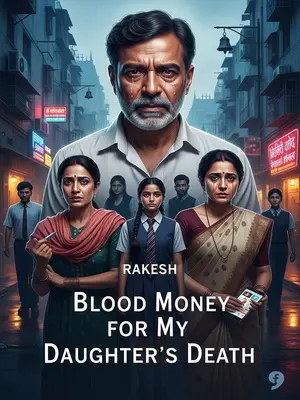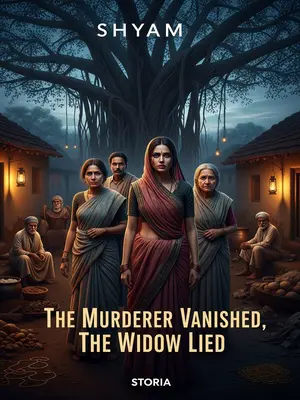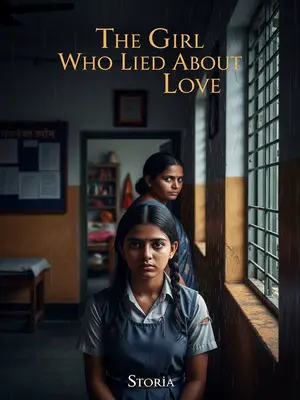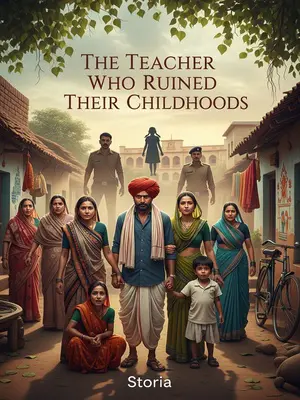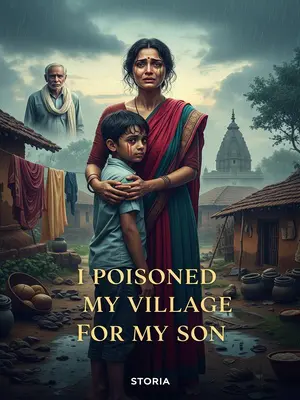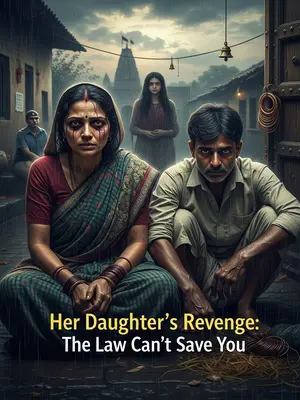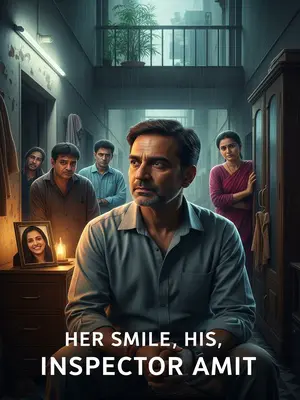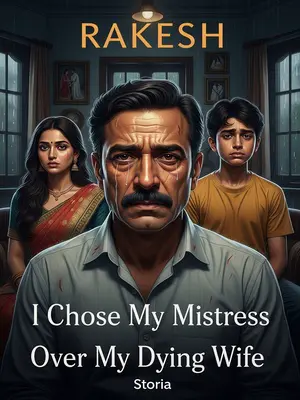Chapter 1: The Cats and the Courtyard
There are two stray cats downstairs in our colony. Every time, my daughter only feeds one of them, completely ignoring the other.
In the courtyard, the heart of our middle-class colony, children zoomed past on their cycles, bells jangling in the warm dusk. The thwack of a cricket ball ricocheted against the walls, while the gentle aroma of agarbatti drifted from a neighbour’s balcony, mixing with the sharper scent of frying onions and the far-off call of the chaiwala. Amid this everyday din, those two cats had become as much a part of the scenery as the worn badminton net strung between two neem trees. My daughter, school bag still drooping from one shoulder, would dart down every afternoon, clutching a steel katori of milk—always for the same cat, never once offering it to the other, no matter how pitifully it mewed or how wide its hungry eyes grew.
I've even noticed—if there’s food in the other cat’s bowl, my daughter will quietly throw it away.
One afternoon, I caught her hesitating by the other cat’s bowl—leftover rice and a dab of Amul butter the watchman must have left. She glanced up at the balconies, eyes darting, then muttered something under her breath. After a moment’s pause, she tiptoed to the dustbin near the gate and, with a quick, guilty flick, tossed the food away. She wiped her hands on her skirt and went right back to the first cat, stroking its head as if nothing had happened. The other cat, tail twitching, watched from a distance—unfed, unacknowledged.
I asked her why she did this. Without a blink, she replied, “That cat is a male. No male is any good. He deserves to starve to death.”
Her words landed with the flat certainty of something overheard in a family drama serial—the kind where aunties curse the villainous men. She didn’t even look at me, just adjusted her hairband, face set, as if daring me to object. I waited for a giggle, some sign she was joking, but she only stared back, chin jutting forward, eyes steady.
I sat down beside her, ruffling her hair, trying to joke it off, but my heart wasn’t in it. “So, you say no male is any good, but your dad is a male—does that mean I’m no good, too?”
I kept my tone light, forced a half-smile, but inside, a knot of worry was tightening. Where had she picked up such thoughts? From the neighbours, the playground, the TV? In India, ideas drift in from every direction—sometimes all it takes is an overheard phrase at the wrong moment.
My daughter quickly shook her head and said I was the best dad in the world, but apart from me, no man was any good.
She spoke with innocent finality, her pigtails bouncing as she nodded, eyes shining with sincerity. "No, Papa! You are the best. Only you. But all other boys... bad!" She scrunched up her nose, as if the very idea was distasteful. I laughed, but unease lingered. Children, yaar—so absolute, so black-and-white.
I told my wife, Meera, about this. She laughed and reassured me, “Children at this age just prefer to play with their own gender. It’s normal for her to be a bit biased against boys.”
Meera, ever practical, was sitting cross-legged on the bed, folding laundry, when I told her. Her bangles clinked as she chuckled, "Arrey, let it be. Girls this age, they always stick together, na? Even I was like that—boys used to feel like aliens! It’s nothing serious. She’ll grow out of it." But then, as she folded a dupatta, her hands paused for a heartbeat. A flicker of concern crossed her face before she resumed her practical tone.
She even felt it was a good thing that our daughter disliked males. After all, society is like a jungle—you never know if the person you meet is trustworthy or not. It’s always better to be cautious of strange men.
Lowering her voice, she glanced at our daughter playing ludo with her cousin in the hall. "You know how it is outside, especially for girls. It's better she has some caution, na? The world is not a safe place. Log kya kya karte hain, you read the news!"
Her words made sense, so I didn’t press the issue further.
Sometimes, when your spouse speaks with that quiet conviction, you just nod along, thinking, maybe this is the way the world is. I shrugged it off, deciding not to overthink. Children say all sorts of strange things. Maybe tomorrow she’d start liking the other cat again.
As for the male cat, after being bullied repeatedly, he eventually ran away. The remaining female cat didn’t last long either—she was chased off by an ugly, overly friendly calico cat from the next building.
The colony cats had their own dramas. The calico, fat and swaggering, tail up like a victory flag, ruled the water tank and chased the others away. Uncles in the parking lot would shake their heads, muttering, “Even cats here have their politics, yaar.” The cat saga faded, another fleeting story in the everyday life of our colony.

